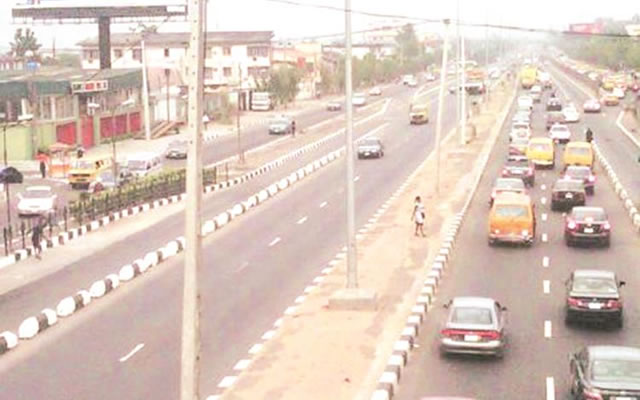Speed up private sector investment


Private investment in capital-intensive projects such as roads is the only viable and sustainable way of modernising Zimbabwe’s infrastructure
Lloyd Gumbo Mr Speaker, Sir
The potential game changer for Southern African countries is capital to fund the Industrialisation Strategy adopted by the Heads of State and Government at the recent Sadc Extraordinary Summit held in Harare.Some people will call it a too ambitious venture as raised by a Zambian journalist during a Press briefing at the end of the Summit when he asked what mechanisms had been put in place to ensure the plan succeeds.
President Mugabe, in his capacity as Sadc chairperson, was asked how much would be required to fund the industrialisation initiative and where funding would come from.
He said there were a number of possible sources of income including Asian banks.
Mr Speaker Sir, it is a given that if African countries in general and Sadc countries in particular are to industrialise, it will require a fair share of huge capital that these countries do not have in liquid form at the moment.
African Development Bank resident director in Zimbabwe Mateus Magala gave an insight of what is required to make Africa modernise during his presentation to the Business Council of Southern Africa (BCSA) at the Summit.
“The costs of overhauling Africa’s infrastructure needs are estimated at about $100 billion a year over the next decade,” he said.
“Two-thirds of that is required for entirely new infrastructure, and the rest for the maintenance of existing infrastructure
“Only about $25 billion a year is currently being spent on capital expenditure, leaving a substantial shortfall. New and innovative financing will be needed to address this gap.”
Mr Speaker Sir, it goes without saying that industrialisation cannot be possible if our infrastructure remains dilapidated.
Energy and transport infrastructure is the most affected given the capital intensive nature of the projects.
In Zimbabwe, every year since dollarisation, capital projects have been the most affected as their vote allocation reflects the liquidity challenges facing the country at a time underpaid civil servants’ wages chew more than 70 percent of revenue collections.
Mr Speaker Sir, we have been loud on public-private partnerships, build operate and transfer, among other investments mechanisms, but we have been very slow in giving face to the same.
At the moment Government does not have the capacity to fund most of the capital projects that are needed as a matter of urgency.
As such, private investment in such projects is the only viable and sustainable way of modernising Zimbabwe’s infrastructure.
Dualisation of the Beitbridge-Masvingo-Harare highway is one major project whose sweetness has remained on the theoretical intentions of Government and nothing practical.
For years, we have been told feasibility studies were being conducted on the road with the intention of dualising it.
The private sector has always been identified as the only viable way of doing the project.
Today there are huge potholes in the middle of the road, thousands of lives have been lost due to the state of the road than drivers’ recklessness.
Yet successive ministers have on several occasions appeared on television declaring that the road was about to be dualised.
But years have gone by and at this pace, we are likely to go more years without the project taking shape.
This is despite the fact that the highway is one of the major cash cows in road transport fees.
This lackadaisical approach is likely to see Zimbabwe trail its neighbouring countries in infrastructure development despite adoption of the regional industrialisation strategy.
Magala added that lack of physical infrastructure was the main impediment to industrialisation, transformation and development of private sector which resulted in low levels of trade within and without the African continent.
“Lack of physical infrastructure is a main impediment to increasing market size, deepening regional integration and lowering costs through economies of scale. Existing infrastructure is often outdated and poorly maintained.
“SADC markets (are) largely inaccessible because of poor infrastructure connectivity. Poor roads, rail and ports add 30 percent-40 percent to the cost of goods traded among African countries and much more for international trade.
“The bad state of SADC’s electricity, water, road and information and communication technology imposes high costs on industries, reduce competitiveness, and restricts access to local and international markets. Infrastructure deficit taxes GDP by 2 percent every year,” said Magala.
President Mugabe during the Press conference indicated that there were plans to approve some of the infrastructure development projects to be regionally-funded given their central role in the economies of Southern Africa.
But while that would be a welcome development, as Zimbabwe we also need to take the lead in running our own projects.
At the moment red tape has been cited as the major impediment to private sector investment in various infrastructure projects.
Mr Speaker Sir, why has it taken so long for the Government to approve the dualisation of Masvingo-Harare-Chirundu highway?
Are we not losing out on revenue with transporters preferring alternative routes that they would not even consider if our road infrastructure was right?
Why are we letting countries surrounding us benefit from our negligence at a time we need so much capital?
We need to speed up private sector investment in infrastructure projects.
We have various sectors that need urgent attention like transport, energy and water.
These have far-reaching benefits to the economy and citizens of this country at large.
MPs must summon ministers and demand satisfactory answers on why some of these projects are not taking off.
Feedback: [email protected]








Comments